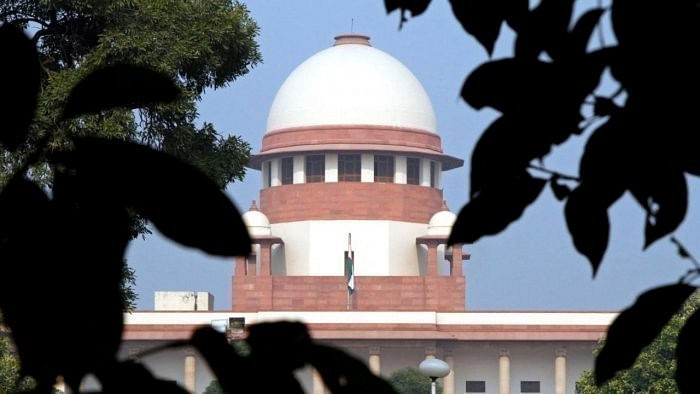
The Supreme Court of India.
Credit: PTI File Photo
New Delhi: The Supreme Court on Thursday declined to entertain a plea for a direction to mandate medical professionals to specify to patients all kinds of possible risks and adverse effects associated with a drug being prescribed by them.
A bench of Justices B R Gavai and K V Viswanathan dismissed a plea challenging the Delhi High Court's May 15 order which had also rejected the petition.
The court said, "It is not practical."
Advocate Prashant Bhushan, appearing for petitioner Jacob Vadakkanchery, said the plea raised an important issue as to whether the doctors should be obliged to inform their patients about the possible side effects of medicines they are prescribing.
The bench observed a general practitioner may not be able to cater to more than 10 to 15 patients if this is followed and then there may be cases under the Consumer Protection Act.
"It will help in avoiding consumer protection cases of medical negligence," Bhushan claimed, adding it will be easy for the doctors to have a printed proforma about the possible side effects of the drugs being prescribed.
The bench observed a doctor may be prescribing different medicines to different patients.
Bhushan contended that the World Health Organization (WHO) has highlighted about harm to patients due to incorrect medicines being prescribed.
The bench pointed out that doctors are already unhappy with the apex court verdict which brought the medical profession within the ambit of the Consumer Protection Act.
The court further said that the only thing that can be done is to have a board displayed in pharmacies in the local language which advises the buyer or patient to read the medicine cover properly.
The bench finally dismissed the plea.
The plea sought directions to the Centre and the National Medical Commission (NMC) to mandate all medical professionals practising in the country to specify to a patient (in the form of an additional slip in the regional language) along with the prescription, all kinds of possible risks and side effects associated with a drug or a pharmaceutical product being prescribed.
The plea had stated that patients have a right to make an informed choice and it should be mandatory for the doctors prescribing the drugs to explain the side effects attached to consuming such medicines to the patient.
The plea said patients can only make an informed choice whether to consume a drug or not upon being made aware of the side effects of the drug being prescribed by the doctor.
The High Court had also refused to consider the plea, having noted that the petitioner does not dispute with respect to the sufficiency of the information supplied by the manufacturer through the insert provided with the drug at the time of sale by the registered pharmacist.
"Since the legislature in its wisdom has elected to impose this duty on the manufacturer and the pharmacist, we do not find any ground for issuing a direction as prayed for in this PIL as it would amount to judicial legislation," the High Court had said.
